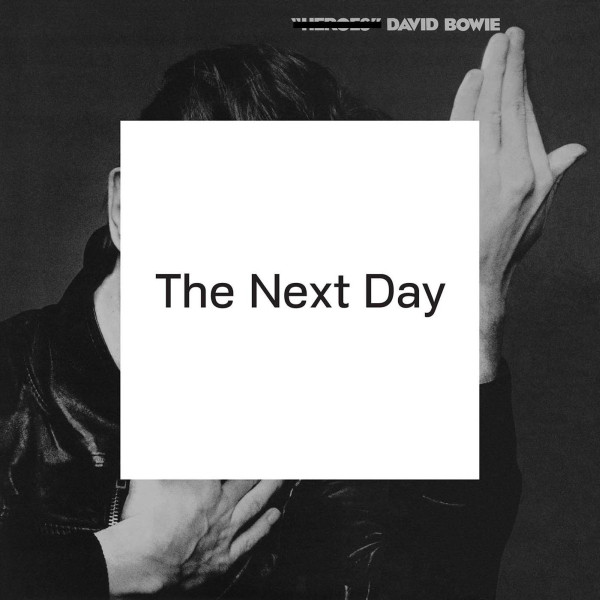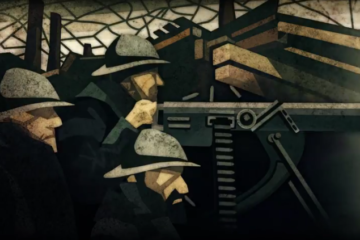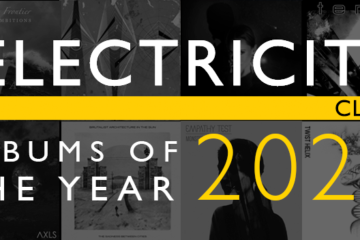Iconic musician returns with an album of distinction
Fresh from the ashes dawns a new day – The Next Day, Bowie’s long-awaited and widely unexpected first release in a decade, following the unveiling of his comeback single ‘Where Are We Now?’
Initially creeping into our consciousness in 1969 with ‘Space Oddity’, the Starman would shape 1970s rock as if he were himself a master sculptor of distinction. Yet he has been heralded a man of many faces and The Next Day sees every nuance of each previous decade filtering through in the form of immensely distinctive pop hooks and veritable amounts of retro modernism. Expressionist by nature, the album manages to reference, however oblique, every milestone in Bowie’s career. If there is any downside to pinpoint however, it has to be the drum sound, which appears to lack dynamics throughout.
In reflection, Bowie’s own artistic mystique would deliver the flamboyant Ziggy Stardust, and he would later join the likes of Kraftwerk and Brian Eno in championing the experimental European; thrusting upon the pop world a whole new cultural matrix. There is of course the flip side to the coin and much later Bowie would loan himself to become a renowned stadium performer – edging away from the darker experimental shadows and climbing aboard a more commercial vehicle. The clever thing about The Next Day is that it’s all so perfectly in keeping with some of his more original and eclectic art pop aesthetic – whichever segment of the spectrum you choose to compare it to.
The opening tracks provide those bold statements that were perhaps very much needed to win our immediate confidence, including an opener that is altogether punchy – styled guitar with a synthesized twist that exhibits plenty of raunchy persistence, and has the necessary grit throughout to colour it to a Bowie-styled strangeness and charm. The quirky resemblance continues with ‘Dirty Boys’, it’s somewhat dissonant and twisted personality taking it somewhere in the direction of Public Image Ltd, while morphing to a classic tuneful Bowie for the chorus. It fades, giving way to smouldering sax and subdued guitar questioning.
What is evident today, is that we’re not likely to see Bowie reaching for the stars vocally – yet he does not sound at all aged. Presently, Bowie has obviously become more attuned to the laid-back, smoother tones – perhaps more refined and sometimes subdued – which rather suits his quietly contemplating reflection back through his past.
The third track, ‘The Stars Are Out Tonight’, features a tried and tested method of steady acoustic guitar rhythm that carries and lifts the track. The lead guitar riff is immensely catchy and thick in texture, with definite spells of magic. It makes for a joyful journey that craves its destination, supplemented with gentle layers of backing vocal. Etching a more sinister feel, is the very atmospheric ‘Love Is Lost’ – it’s the gothic novel frozen in the past, with a dark church-like organ overlay set against chugging bass rhythm, eclectic guitar sounds and a vocal that is naked against the driven pulse of the beat. It is at this point that ‘Where Are We Now?’ turns the album on its head. A ballad of soulful melancholy, it provides the slow burner on the album – a lonely period of enchantment. With piano to guide it to the edge of delicate slumber, it’s a definite like for those who crave a graceful, peaceful meander…or so it seems. That is until the rhythm introduces some variation of the more lively variety midway, eventually building to a rhythmic crescendo with each instrument adding its weight.
BUY NOW
Returning to the more familiar packaged parcel is the ever so slightly commercial-sounding ‘Valentine’s Day’ – nothing particularly remarkable here, but it does have a lustful guitar melody that portrays multiple voices.
The eclectic outburst of ‘If You Can See Me’ is an alarming action thriller with enough twists and turns to ensure a dash of mayhem – bright splashes of colour, blurred vision and the wind in your face, plus a definite brush with seventies progressive which paves the way for ‘I’d Rather Be High’. This has one of the most memorable hooks on the album, weaving all the way through the track with an air of dominance. ‘Boss Of Me’ pulses with an intro that sports gritty grunge-styled guitars. There’s a familiar stab of sax evident and the mid-section opens up to reveal some element of freedom.
The drum intro to ‘Dancing Out In Space’ conjures Phil Collins’ ‘You Can’t Hurry Love’ – not a good sign. However, there’s an interesting synth overlay that’s very expressive, adding an essential intrigue (although in context with the rest of the track, it remains quite cloaked). Giving way to yet another eccentric anthem, ‘How Does The Grass Grow’ strangely presents itself as a cross between ‘Mary’ by Supergrass and Eric Clapton’s ‘Who Do You Love’. Having said that, there’s a surprising twist in there that removes it from such comparisons altogether, and finally it turns to a burst of rockmania before surrendering to the more spacey sweeps of universal energies.
The unrepentant ‘You Will Set The World On Fire’ introduces itself as a 1970s quick-stepping, punk-styled anthem. And, with its unfaltering amounts of angst-driven energy, you’d be forgiven for buying the line. On this occasion the guitar solo burns pretty damn hot, but is extinguished later with the contrast of ‘You Feel So Lonely You Could Die’, a laid-back ballad with the added dressing of theatrical backing vocals. But, back on theme – certainly in terms of title – is ‘Heat’, the intro giving way to an eerie space-like excursion that is accompanied by a fretless bass with ghostly quality. Sinister in atmosphere, it’s enriched vocally, with a string arrangement that adds a striking menace – enough to pull against the calm of the gentle acoustic guitar backing. A waypoint that is not only diverse, but has years of undergrowth that will choke any bright florals that threaten to bloom.
So, after approx 53 minutes running time, is there anything new here? Absolutely not, but Bowie has his own way of doing things. His sound bears his unique signature, an art form that’s referenced by many and unmistakable to most. Which makes The Next Day a tangled popular classic wrapped in a decadent outer packing, but containing that same otherworldly feel – possessed by grit-laded guitars, raunchy sax and playful beats. A confident approach to the welcoming horizon on which the die has certainly been cast.
The Next Day is out now.
- ALIEN SIX –1 - December 24, 2021
- TIN GUN – Reanimation - November 22, 2021
- TENEK – Smoke and Mirrors (Instrumental) - November 6, 2020










